Welcome to #HardWaterHacks … where we debunk myths and provide practical tips for living with water that’s less softened or using softening alternatives to reduce chloride pollution. Each topic in the series, like this article on outdoor yards, has been researched through the personal experiences of District pollution prevention specialist Catherine Harris as she embraces our naturally mineral-rich area groundwater, works to change social norms on home salt use and reduces chloride pollution in natural systems.
Tips by Catherine Harris
Warmer months are here! It’s the time of year when Midwesterners shed their winter layers and head outside to tend to their lawns, gardens and outdoor spaces. Whether planting new flowers or cleaning up furniture after a long winter, your yard needs some TLC, and it’s important to consider how hard water plays into the process. For this #HardWaterHacks article, we’re tackling outdoor spaces and helping to set your plants up for success, all while embracing the naturally mineral-rich water you’re working with.
Test outdoor water sources: Don’t let soft water “salt the Earth”
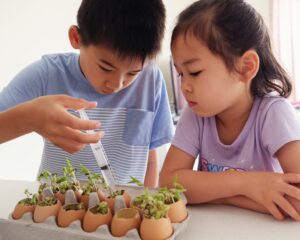
Soft water may be preferred inside the home for some of its aesthetic enhancements to water. But when it comes to watering the garden or plants, salt-filled water is a big no-no. If you’ve ever heard the phrase “salt the earth,” you know it’s not exactly a good thing for plants, right?
Think about science fair projects where kids grow plants side-by-side, each one watered with a different type of water. We can imagine what happens to the plant that gets the saltwater treatment — it doesn’t go so well.
Here’s the important part: if your water softener is hooked up to your outside hose (a spigot or hose bibb), you might be doing unintended damage to your landscaping. Water that comes out of the softener contains sodium, a component of salt. Saltwater isn’t ideal for most landscaping plants and it can kill or stunt their growth over time.
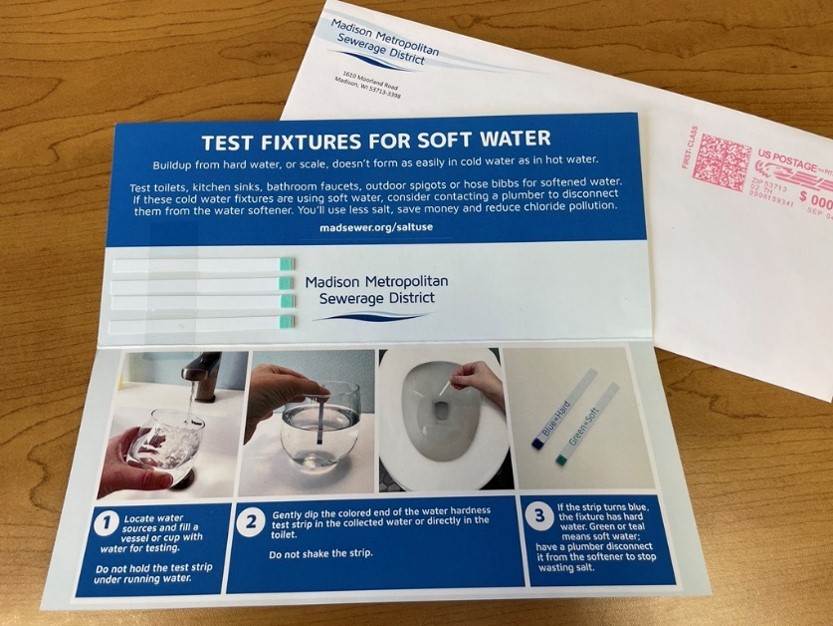
So, how do you make sure you’re not watering your plants with softened water? Use hardness test strips! If you live in our service area, claim your free hardness test strips. The test only takes three easy steps:
- Fill out the request form — we will send the strips in the mail.
- Fill a jar or two with water from your outside hose.
- Dip the test strips and compare the results to the provided key.
That’s it! In no time, you’ll know whether your garden is getting the freshwater or the salt-infused kind. You might be surprised by the results. If you find that your outside hose is connected to the soft water supply, your next step is to call a plumber to reconfigure the plumbing so that your outside spigots or hose bibbs are no longer connected to the softener.
Terracotta: When Hard Water Leaves Its Mark
If you love the rustic look of terracotta planters, you’ve probably noticed over time that they develop a distinct white residue on the outside. What you’re seeing is a buildup of scale. Scale is the very same minerals we call hardness—calcium and magnesium. When these minerals from your tap water evaporate, they leave behind a white deposit, which can be especially noticeable during the spring and summer when you’re watering more often.
Now, I know some people find that white patina kind of cool. It’s like your planters have a lived-in look, right? But if that’s not your aesthetic, here are a few tips to clean up or even change things up:
- Clean them with vinegar. Vinegar saves the day again! Just soak a cloth in vinegar and wipe down the outside of the planters to remove the mineral deposits. It’s that simple.
- Go for “fake-a-cotta”. If you’re ready for a change, replace your terracotta with plastic versions of your planters. They’ll never show mineral build-up and are lightweight and durable.
- Check out local marketplaces. Garage sales or sites like Facebook Marketplace often have gently used enameled alternatives. They’ll give you the same feel as terracotta without the buildup.
- Use rainwater. If you want to take your “green” game up a notch, try using rainwater to water your plants instead of the hose. No minerals to worry about since rainwater is already naturally soft! And for an eco-friendly hack, you can install a rain barrel. Here’s a neat local resource for rain barrels in the area: Ripple Effects Rain Barrels.
Check Your Hose bibbs and Conserve Water
Warmer months are the perfect time to give your outdoor faucets (the hose bibb or spigot you use to water your lawn) some TLC. Leaking hose bibbs can waste a surprising amount of water over the year. According to the EPA, even a small leak—one drip per second—can waste more than 3,000 gallons per year. That’s enough water for over 180 showers!
If you have a leaky hose bibb, give it a little love during your outdoor prep. Fixing leaks and ensuring everything is in good shape before summer is a small step that can make a big difference in your water usage and conservation efforts.
And About That Rock Salt…
Lastly, a little outdoor cleaning tip: if you’re cleaning out your garage and finding leftover rock salt from winter, don’t be tempted to just toss it around the yard or blast it out to use it up. Doing that can harm your lawn, plants and waterways. Salt doesn’t expire, so if you have the space, store it in a sealed container for next year. Some local municipalities may even accept leftover salt for proper disposal, so check around to see if there’s a drop-off location near you!
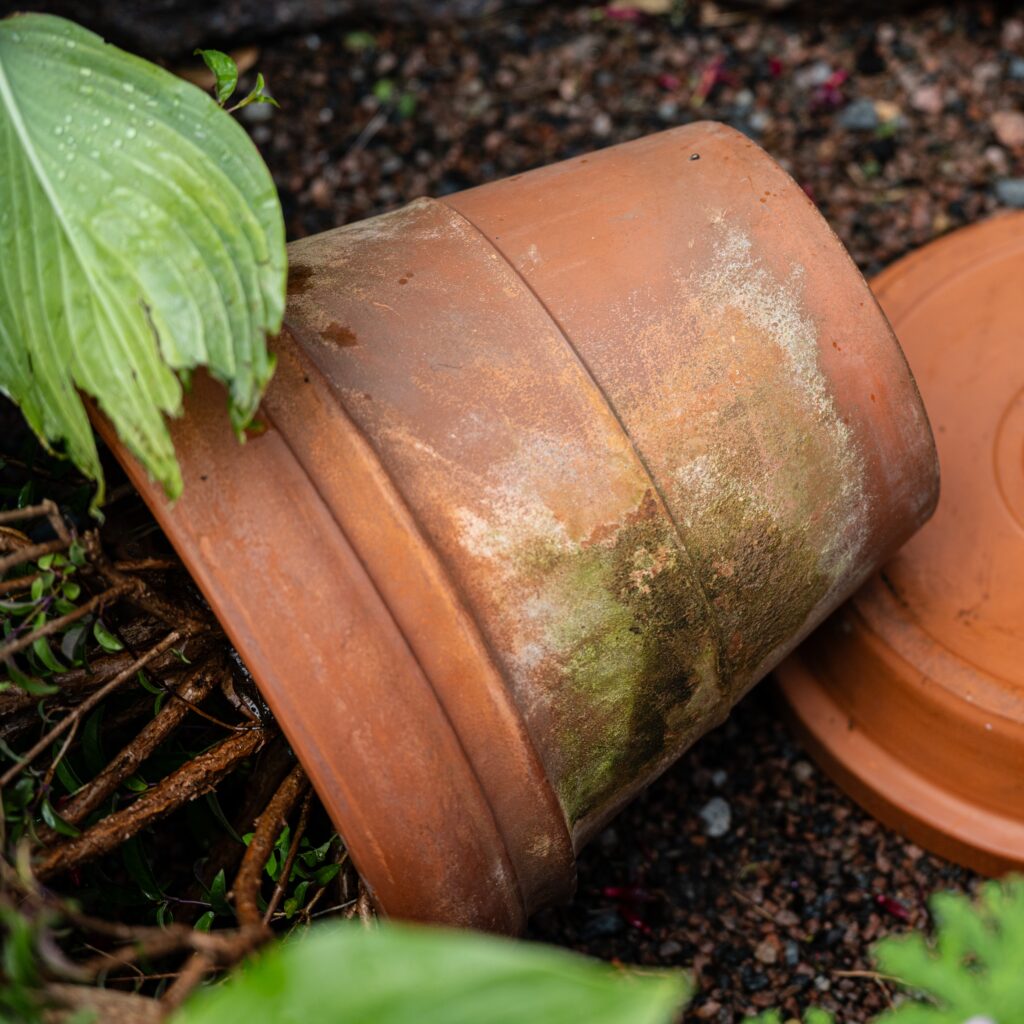
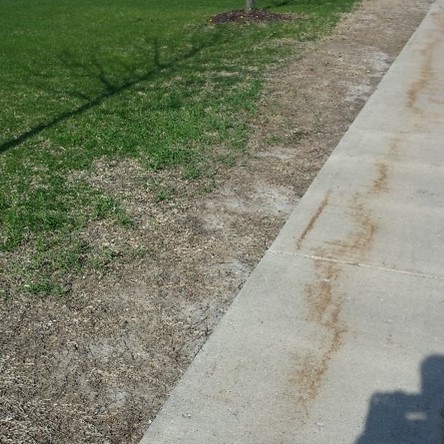
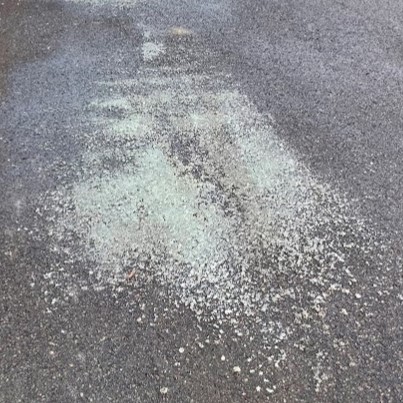
Key takeaways:
• Test your outdoor faucet (or hose bibb) to ensure it’s not connected to your water softener before watering plants. Too much salt is a no-go for most landscaping plants.
• Hard water on terracotta planters can leave mineral deposits, but vinegar is a quick fix. Or, get creative with plastic planters or enameled alternatives.
• Fix leaks around your hose bibb to conserve water and reduce waste. Even small leaks add up!
• Store leftover rock salt properly to protect the environment and your yard.
As you dive into planting season and outdoor prep, remember that your natural, mineral-rich hard water doesn’t have to be a bad thing. By making a few simple adjustments, you can ensure your plants stay happy and your outdoor space stays in top shape, all while being mindful of water conservation.
Here’s to another great season of enjoying your hard water with a green thumb!






